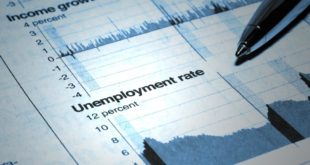Dear Friend, In the midst of this busy Christmas season, I want to make sure you received our year-end letter from Lew Rockwell. If you already responded, thank you! But if not, will you take a minute today to make your most generous contribution and support the Mises Institute? We are all thankful to have the political season of 2022 over, but now the 2024 presidential election looms like a bad moon. The midterms solved nothing and brought no relief to a divided and...
Read More »Economic Growth Requires Savings, Not Money Pumping
Keynesians believe that economic growth can occur only with an expanding supply of money. Growth doesn't need more money; it needs more savings. Original Article: "Economic Growth Requires Savings, Not Money Pumping" This Audio Mises Wire is generously sponsored by Christopher Condon. [embedded content] Tags:...
Read More »The Radio Rothbard (Mostly Negative) Predictions for 2023
On this episode of Radio Rothbard, Ryan McMaken and Tho Bishop look ahead to 2023 with a handful of predictions for the new year. They even manage to find one reason for optimism! Be sure to follow Radio Rothbard at Mises.org/RadioRothbard. [embedded content] Tags: Featured,newsletter
Read More »Behavioral Economics Challenges the Rationality of Consumer Choices
A relatively new area of study in economics, behavioral economics, has started to gain popularity. The behavioral economics framework emerged because of dissatisfaction with the neoclassical theory regarding consumer choice. A major problem with the neoclassical theory is that human beings are presented as if hardwired with a scale of preferences. Regardless of circumstances, this scale is considered to remain the same at all times. Mainstream economics argues that,...
Read More »A (True) Thanksgiving Tale of Socialism in America and Israel
The Pilgrims tried socialism at Plymouth. After two years, they returned to private enterprise. Likewise, Israel was founded as a socialist state but has back turned toward free markets. Original Article: "A (True) Thanksgiving Tale of Socialism in America and Israel" This Audio Mises Wire is generously sponsored by Christopher Condon. [embedded content]...
Read More »The Second Housing Bubble of the 21st Century Is Over
[Originally published in the Housing Finance International Journal.] The 21st century, only 23 years old, has already had two giant, international housing bubbles. It makes one doubt that we are getting any smarter with experience. Among the countries involved in the second bubble, both the U.S. and Canada fully participated in the newest rampant inflation of house prices. Prices this time reached levels far above those of the last boom peak. In the U.S., the...
Read More »Objection, Professor Harari! Logic Proves the Existence of Free Will
Yuval Noah Harari, professor of history at Hebrew University in Jerusalem, is not only a best-selling author but also a top advisor to Klaus Schwab, founder and front man of the World Economic Forum (WEF). In 2018, Harari wrote: “Unfortunately, ‘free will’ isn’t a scientific reality. It is a myth inherited from Christian theology.” And, in a 2019 interview, Harari said: Humans today are a hackable animal—an animal that can be hacked. . . . Hacking a person means...
Read More »Help the Institute Build the Foundations of Liberty. Donate before 2023!
Forty years ago, I was worried. I had had the honor of working with Ludwig von Mises. But, not long after his death, the greatest economist and defender of freedom in the twentieth century was being ignored. Some years before, I had worked for the great Neil McCaffrey at his Arlington House Publishers. One day, I was called into his office and asked, “How’d you like to be Ludwig von Mises’s editor?” I was to correct and bring back into print three of the great man’s...
Read More »The Great Leap Backward*
[This piece is an excerpt from Chapter 13 of The Great Reset and the Struggle for Liberty: Unraveling the Global Agenda, to be released January 10, 2023.] This chapter derisively refers to the notorious Great Leap Forward (1958–1961) as the Great Leap Backward. But China’s Great Leap Forward is not the ultimate object of my scorn. That scorn is reserved for the contemporary project conducted by people, who, if they knew anything about history, or cared about its...
Read More »US Labor Market: Help Wanted!
As we enter the holiday season stock owners have been the big losers of 2022, but jobs are still plentiful and nominal wages are rising rapidly. The Wall Street Journal reports “Stiff Demand Drives Gains in Jobs, Wages” (December 4). Faced with a stagnant stock market, nothing bolsters confidence more than the plethora of job openings, seemingly everywhere, and for all types of jobs. The number of job openings is a statistic worth paying attention to as a gauge of...
Read More » Swiss Economicblogs.org
Swiss Economicblogs.org







